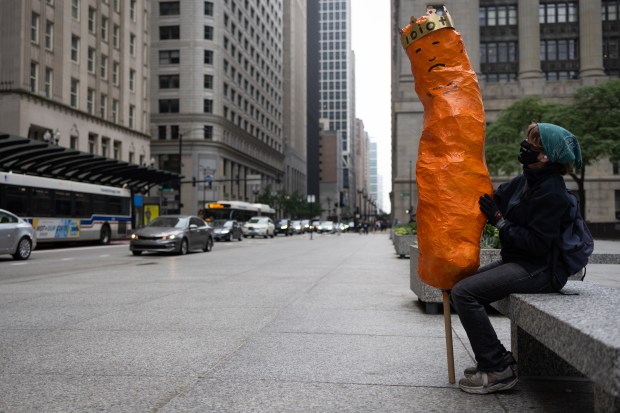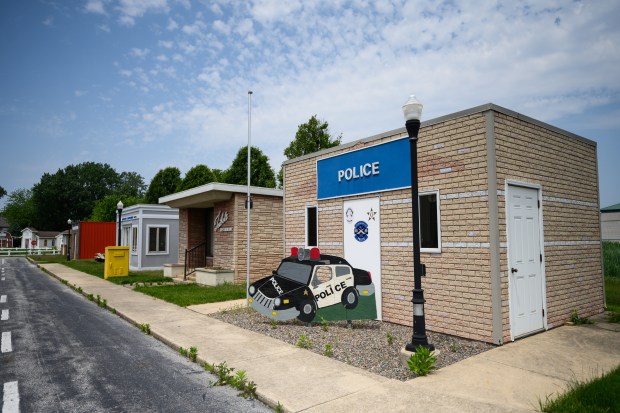After Mary Mathieu learned about high rates of suicide among the law enforcement community, she decided a dose of gratitude might be a good antidote.
So Mathieu, president of the Criminal Justice Club at Trinity Christian College in Palos Heights, organized a letter-writing campaign of appreciation to show police and security how much they mean to the community. Another impetus was her own experience with mental health challenges.
Dozens of club members, all class of ’27 and in the Criminal Justice program, were on board and met several months ago to put the plan into action.
“We learn in our criminal justice courses how officer suicide is common and the goal was to help law enforcement officials know that they are appreciated and valued,” said Mathieu. “Speaking from personal experience when I was struggling with my mental health, people wrote letters of encouragement to me that continue to serve as a message of hope whenever things got dark.
“This event idea came from this as we recognize that words have the power to save lives,” she said.
The club members had learned about the stresses faced by police in their classes and from an officer who came to speak to them.
“We actually had a police officer from Palos Heights Police Department come and talk to us about her job and how it was going,” said club member Aileen Guillermo. “One of the things she just highlighted was the support systems in place and how mentally taxing the job is.”
The officer, a graduate of Trinity’s criminal justice program, said that support system includes access to a therapist after difficult incidents.
“They’re working day to day in the community, they experience crimes or just situations that can be uncomfortable personally and professionally and that definitely takes a toll out of your career,” she said.
Guillermo, who plans to use her double major of criminal justice and Spanish as a future immigration lawyer, added criticism from the public could also play a role.
“I guess sometimes police do get a bad rap, especially in the city of Chicago,” said Guillermo.
In her letter, she thanked officers for keeping the community safe and told campus security workers she appreciated them making sure students had what they needed, helping when they got locked out of their rooms.
“I added a little joke and said they look really cool in their golf carts riding around Trinity,” Guillermo said of security.
Ten students and Dennis Connelly, associate professor of Criminal Justice, who is also a former Chicago police officer, brought the letters over to the Palos Heights Police Department, along with some donuts. They got a tour of the department and some encouragement about entering the field of criminal justice.
The letters were well-received.
“We are very lucky to work in Palos Heights and we are always so appreciative of the support that our community gives us, but it definitely brings a good feeling when students interested in our profession and criminal justice reach out with positive words,” said Deputy Chief Mike Yott.
Shows of support help with some of the challenges of policing, he explained.
“There are a lot of stresses and frustrations that officers feel on a regular basis,” Yott said. “We tend to think of things we see in the media and crime in general, but there are also a lot of daily things, such as working overnights, overtime, and balancing work, home, and family while dealing with some of the unique stressors that law enforcement officers deal with that can be difficult.
“Words of encouragement, like those offered by the Trinity students, go a long way to help boost morale and remind our officers of the positive impact they are having on the community.”
Connelly pointed out he hadn’t suggested or coached students on the club project, though they had discussions about the difficulties of policing in class. He said he was impressed with “just how appreciative they are of those who are protecting them when it doesn’t always seem to be a popular subject.”
Mackenzi Huyser, vice president for Advancement at Trinity, said projects like the letter writing were strongly encouraged by the college.
“One aspect of the Transformative Colleges Initiative at Trinity focuses on neighborhoods and community,” said Huyser. “This aspect says that our good is directly tied up in the good of those around us. This project allowed students to learn through best practices.”
Janice Neumann is a freelance reporter for the Daily Southtown.




